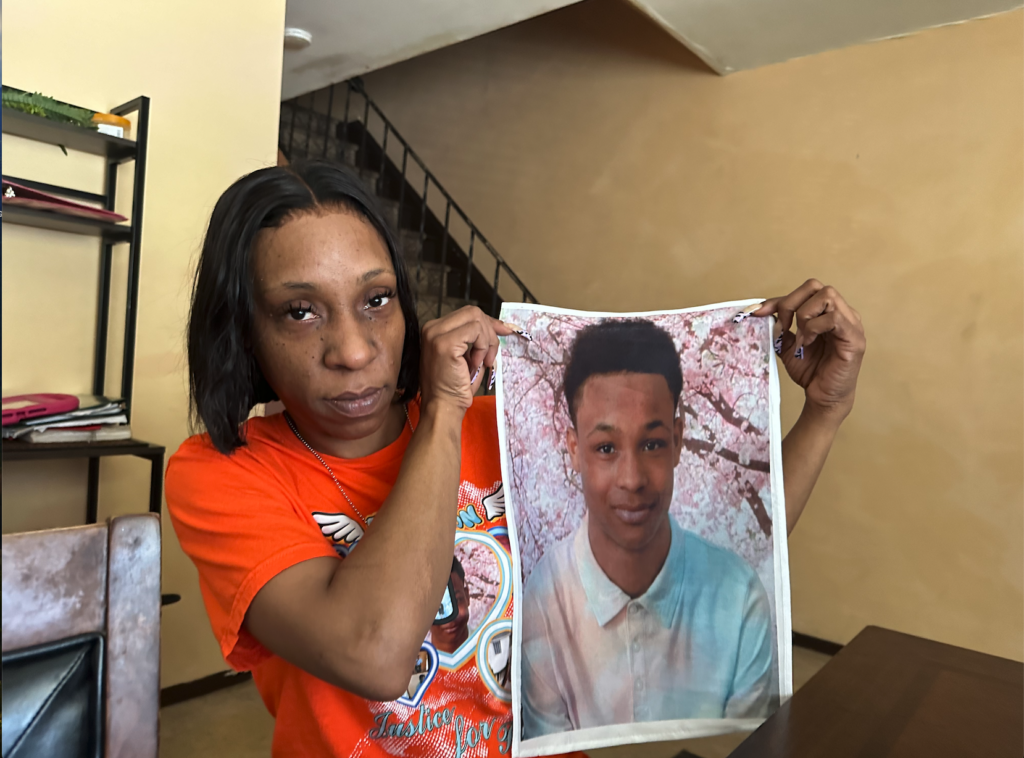SWR superintendent calls viral video showing students using racial slur ‘reprehensible’

A pair of Shoreham-Wading River High School students are facing disciplinary action after a viral video circulated of them using racial slurs directed at a Black man.
The video originated on a site called Omegle — where users are randomly paired for a video chat — and then shared on TikTok and Twitter.
The students were identified by a user on TikTok as students at SWR and users began sharing contact information for high school principal Frank Pugliese.
On Thursday, school superintendent Gerard Poole acknowledged the video in a letter to the community, saying the district was informed late Wednesday night of the “inappropriate and racially derogatory video.”
Mr. Poole said the district does not comment on individual student disciplinary matters, but he assured the community that the “matter will be addressed directly with the parties involved and disciplinary action will be handled in accordance with our Code of Conduct.”
He called the content of the video “reprehensible and in clear violation of the core values of our school district.”
At least one student in the video has since apologized to the man on the receiving end of the racial slurs, Jovan Bradley. On Twitter Friday, Mr. Bradley said a parent of one of the boys reached out to him and began a dialogue. While he said he was not going to share what the boy wrote in an apology, he did post a response he sent to both the boy and his parents.
He thanked the boy for the apology and encouraged him to listen to people of color and their experiences with racist words.
“I genuinely hope that you see the fault in what you did at a human level,” he wrote. “I hope you can advocate for people that are different from you from this point on. I worry for the young children who may not have the same mental fortitude as I do who may have been subjected to your words.”
Reached via Twitter, Mr. Bradley said Thursday night he was worried about the hate subjected to the boys from social media users after seeing the video. In a followup video posted Thursday, Mr. Bradley, who identifies himself as half Black and half white, urged people to stop contacting an Instagram user with the same as one of the boys, highlighting how the rush to condemn an action online can quickly run awry.
“That’s not the guy,” he said in the video.
Mr. Bradley did not respond to a request for a further interview.
A clip of the video posted on TikTok has been viewed more than 400,000 times and has generated more than 8,900 comments. An unedited version was taken down by TikTok and Mr. Bradley reposted it with the slurs beeped out. In the Omegle video, Mr. Bradley and the boys are seen exchanging greetings when their screens connect. One boy then uses a racial slur.
“Why?” Mr. Bradley responds repeatedly.
Later in the video, they refer to him as a slave and make a motion as if using a whip. The boys then signed off, ending the interaction after 38 seconds.
He first posted the video Tuesday.
In a note to the parents of one boy, Mr. Bradley wrote that he hopes they can use it as a teachable moment. He offered to share his life experiences as a resource if they wished.
“Just acknowledging what he’s done and reaching out says a lot and means a lot truly and I hope you believe those words,” he said. “I know it can be hard to see your child in that situation but if it helps even one person be able to advocate for themselves or learn than I believe good can still come from this.”
The incident comes just over five months after a Riverhead High School senior’s athletic scholarship and college admission to Marquette University was revoked after a racist post on Snapchat became widely circulated. The student, who graduated in June, has since developed a program called Beyond the Huddle, where she hosts workshops for young athletes to share her experience as a learning tool and to focus on “developing awareness and empathy while teaching good decision making skills.”
Mr. Poole wrote in the letter to the community that the district is “rooted in strong teachings of tolerance, acceptance and the importance of embracing diversity.” He noted in recent years, students and staff have pushed to “cultivate a sense of unity and inclusion in our school community and among all the diverse student groups that make up our amazing district.”
The student enrollment in the district is 87% white, according to the 2018-19 data published by the New York State Department of Education, the most recent available. Black students represent just 1% of the student population. Hispanic or Latino represent 8% of the student population.
Mr. Poole said student experiences within the curriculum are “designed to strength and educate students’ understanding of global issues related to tolerance, civil rights and community.”
He added: “It is for these reasons, and many others, that the social media video was found to be most troubling to us as a school district.”
Omegle is not a new platform, having launched in 2009. But it’s spiked in popularity during the pandemic as people remain isolated at home, the New York Times recently reported.
Its resurgence has been “particularly with teenagers feeling alienated by months of remote learning and limited face-to-face socializing,” the Times story said.
Mr. Poole encouraged parents to engage their children on how to safeguard themselves online as well as how “one’s words and actions have consequences whether negatively intended or not.”








